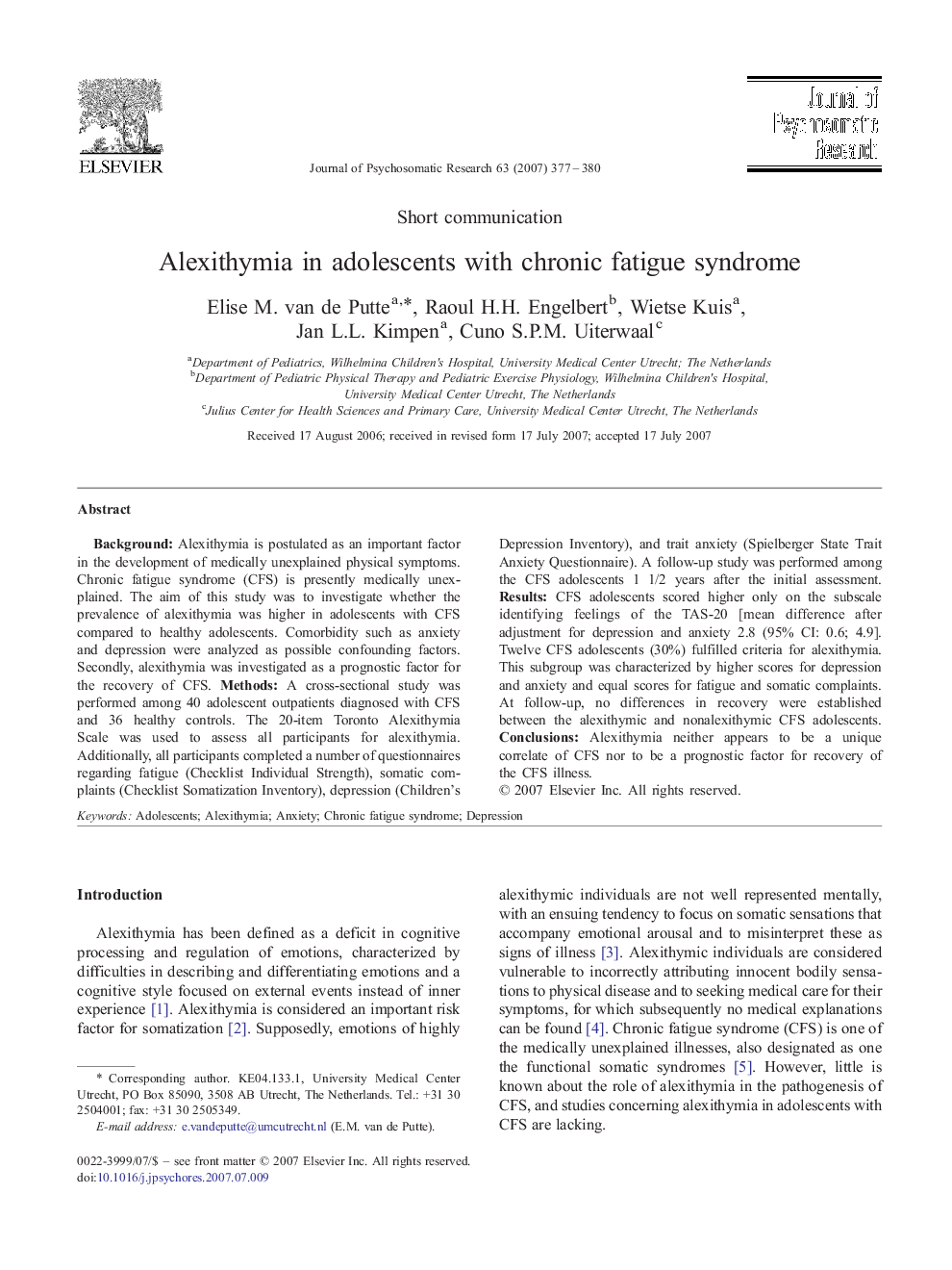| Article ID | Journal | Published Year | Pages | File Type |
|---|---|---|---|---|
| 951143 | Journal of Psychosomatic Research | 2007 | 4 Pages |
BackgroundAlexithymia is postulated as an important factor in the development of medically unexplained physical symptoms. Chronic fatigue syndrome (CFS) is presently medically unexplained. The aim of this study was to investigate whether the prevalence of alexithymia was higher in adolescents with CFS compared to healthy adolescents. Comorbidity such as anxiety and depression were analyzed as possible confounding factors. Secondly, alexithymia was investigated as a prognostic factor for the recovery of CFS.MethodsA cross-sectional study was performed among 40 adolescent outpatients diagnosed with CFS and 36 healthy controls. The 20-item Toronto Alexithymia Scale was used to assess all participants for alexithymia. Additionally, all participants completed a number of questionnaires regarding fatigue (Checklist Individual Strength), somatic complaints (Checklist Somatization Inventory), depression (Children's Depression Inventory), and trait anxiety (Spielberger State Trait Anxiety Questionnaire). A follow-up study was performed among the CFS adolescents 1 1/2 years after the initial assessment.ResultsCFS adolescents scored higher only on the subscale identifying feelings of the TAS-20 [mean difference after adjustment for depression and anxiety 2.8 (95% CI: 0.6; 4.9]. Twelve CFS adolescents (30%) fulfilled criteria for alexithymia. This subgroup was characterized by higher scores for depression and anxiety and equal scores for fatigue and somatic complaints. At follow-up, no differences in recovery were established between the alexithymic and nonalexithymic CFS adolescents.ConclusionsAlexithymia neither appears to be a unique correlate of CFS nor to be a prognostic factor for recovery of the CFS illness.
